Coronavirus test shortage 'strikes at the heart of everything that we're doing,' doctor warns
The coronavirus pandemic has killed over 4,000 people around the world, affecting over 100 different countries. It is making its way through the U.S., impacting 35 states so far with over 1,300 confirmed cases.
There are likely far more cases that medical professionals aren’t aware of — and that’s because of the lack of available coronavirus testing kits from the Centers for Disease Control and Prevention (CDC).
“There’s a shortage,” Dr. Howard Forman, a professor at the Yale School of Public Health and practicing radiologist at Yale New Haven Hospital, told Yahoo Finance’s “On the Move” on Thursday (video above).
“And it strikes at the heart of everything we’re doing right now that we cannot do the most simple thing, which is just to test people and find out whether they are positive or not.”
Despite the first confirmed case of COVID-19 in the U.S. occurred on January 19, testing has lagged across the country. U.S. public health labs have picked up some slack, but health officials warn that the current pace of testing is not nearly enough.
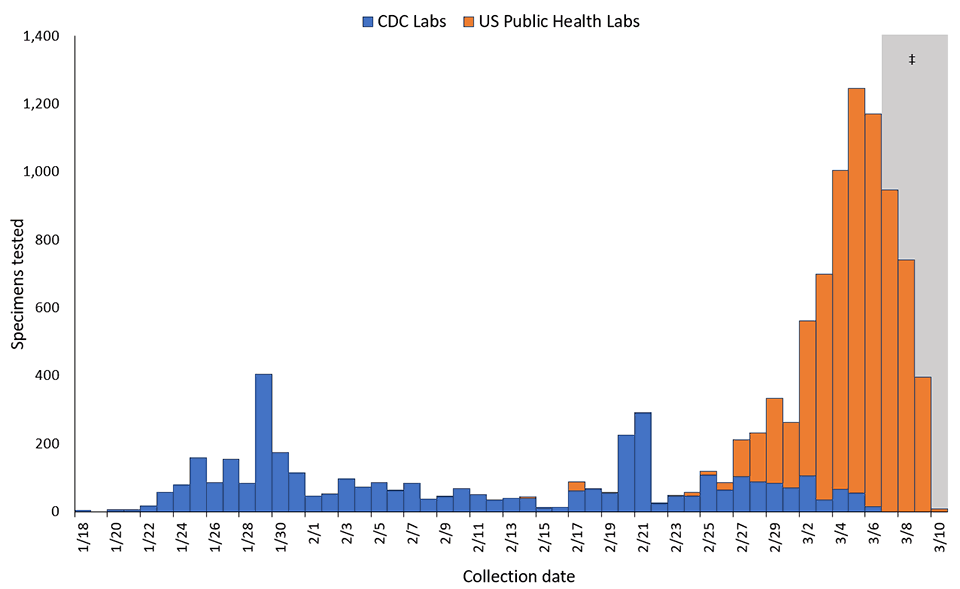
The U.S. only has 10% of the tests that are needed. According to Forman, “the need will grow vastly. We need to go up to 100[%]. We need to go far beyond that.”
According to the Atlantic, researchers “have concluded that thousands of Americans may have already been infected by the beginning of [March].” Between January 18 and March 10, there have been 11,079 tests for COVID-19 in the U.S. In comparison, South Korea has conducted over 100,000 tests, and the U.K. has tested nearly 25,000 people.
“As I understand it, right now we are ramping up considerably, but I think we’re probably still 90% away from getting to what would be probably minimum acceptable capacity now and still needing to ramp up from here considerably,” Forman said.
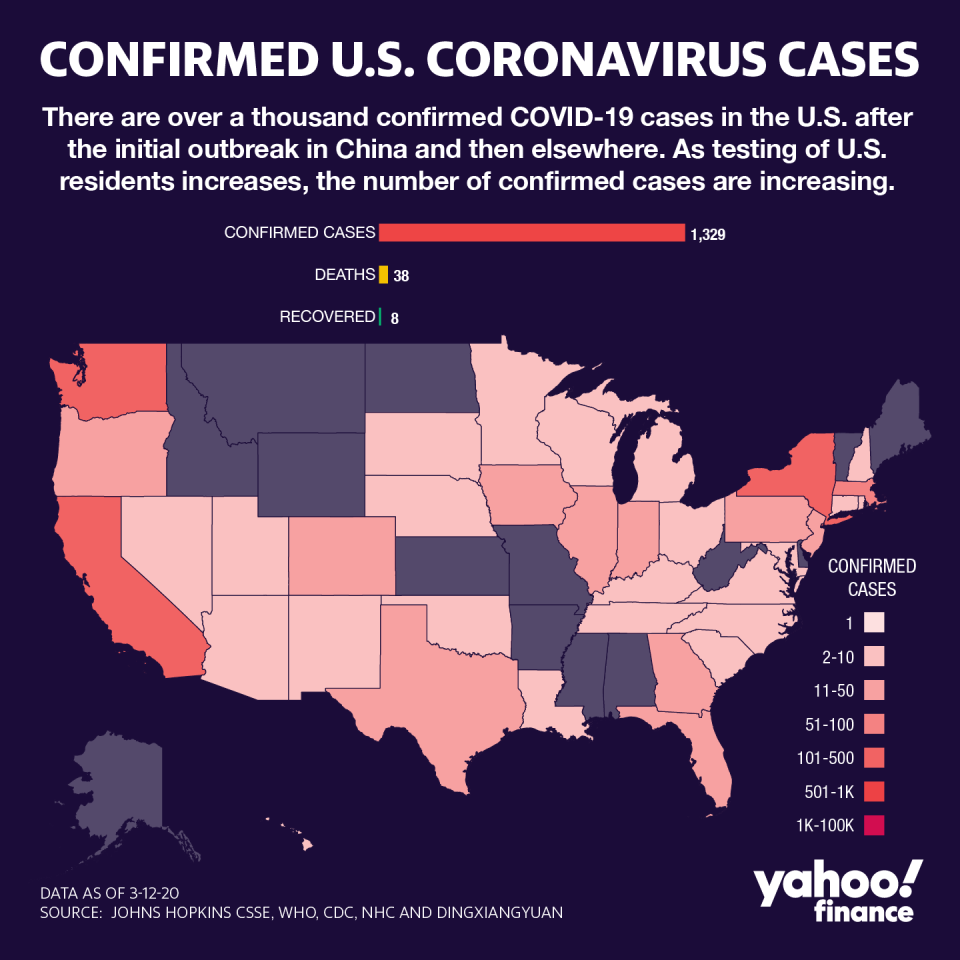
‘We should be doing at least 100,000 tests a day’
In his testimony to the House Oversight Committee on Thursday, Dr. Anthony Fauci, the director of the National Institute of Allergy and Infectious Disease, described the U.S. testing of coronavirus as “a failing.”
The outspoken official said that “the idea of anybody getting [a test] easily the way people in other countries are doing it, we’re not set up for that.”
He added: “Do I think we should be? Yes. We’re not. The system is not geared to what we need right now. That is a failing. It’s a failing. Let’s admit it."
Because of this shortage, the testing for coronavirus is being rationed. In many places, only those who meet specific criteria have been granted tests — people showing symptoms who have traveled to or came in direct contact with people who have traveled to affected countries, like China and Italy.
“We should be doing at least 100,000 tests a day in this country right now,” Forman said, “not just people that are presenting, but also doing some level of surveillance and prevalence testing to figure out where the hot spots are, and how we can counsel various school districts and governments, and counsel business about how they can carry on in a time where people are feeling very panicky.”
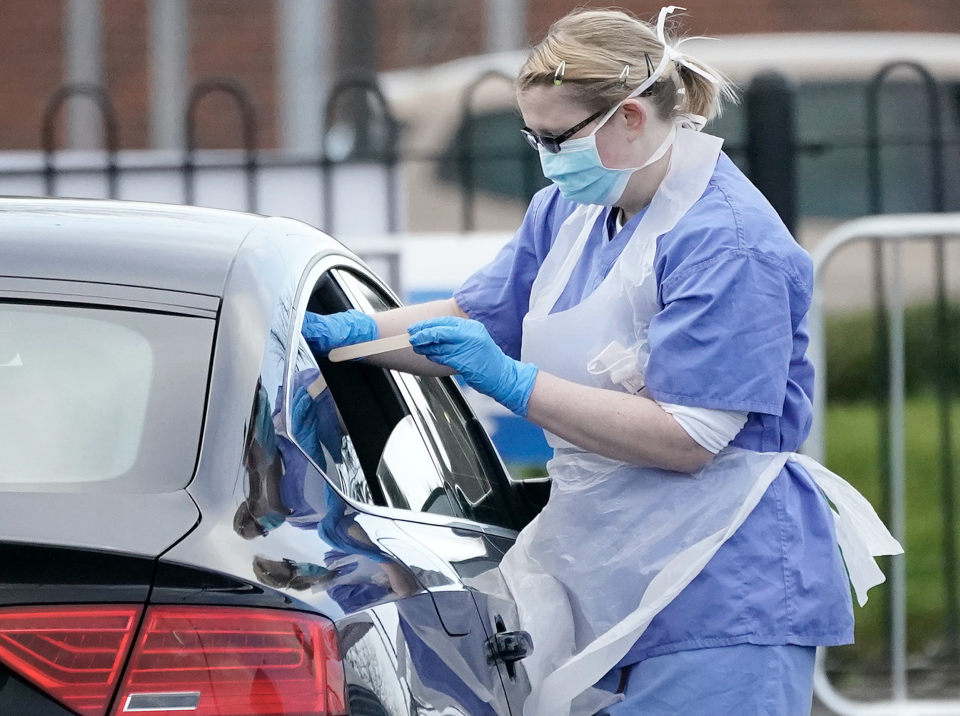
In the meantime, health officials from the CDC and the World Health Organization (WHO) have urged people to continuously wash their hands, avoid touching their face, and try to avoid as much social contact as possible in order to slow the spread of the virus.
“For the short run, anything we can do to mitigate a huge spike in cases will serve us really well,” Forman said. “We’re not just trying to prevent people from becoming infected at this point. We can accept the idea that maybe 30 million, maybe 90 million people in the United States will become infected with this over the next 12 or 18 months.”
He continued: “What we cannot afford is for 30 million people to become infected over the next three months or five months. So anything we can do to dampen the speed at which this spreads through the population will serve everybody well.”
‘Too many patients will overwhelm the system’
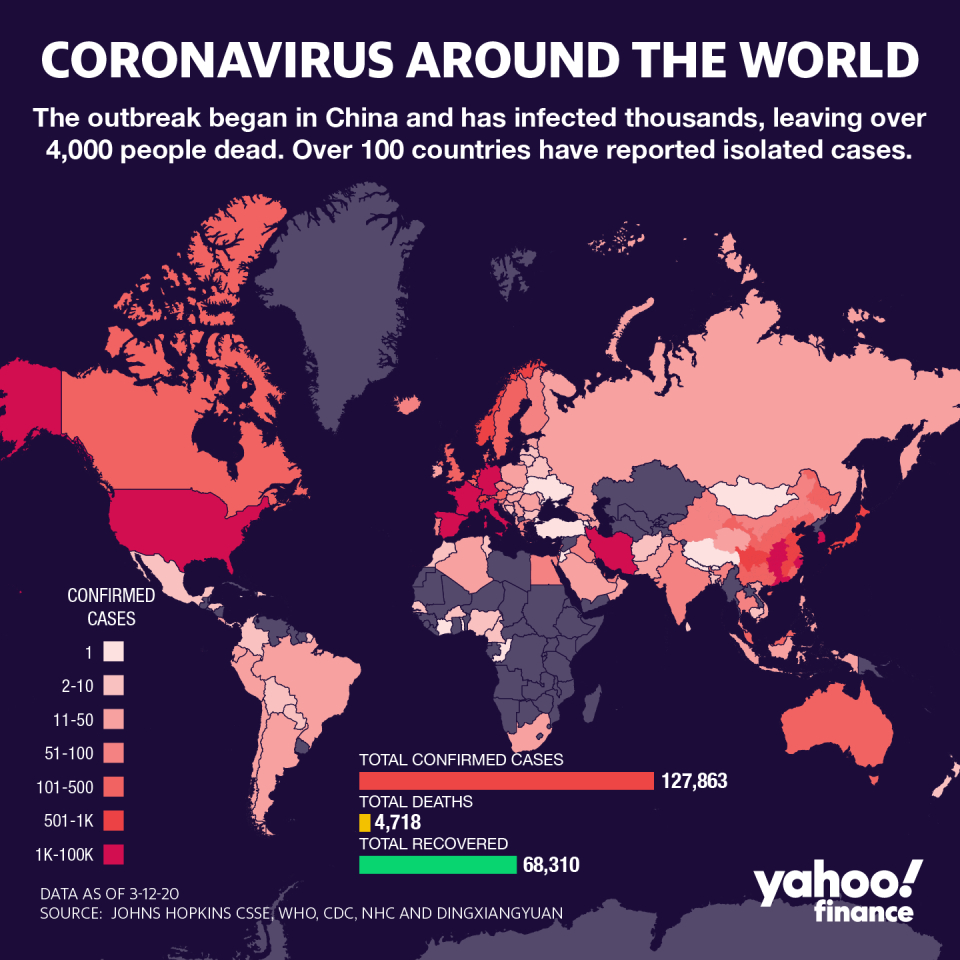
In Italy, the European country hit the hardest, hospitals have been so overwhelmed by coronavirus patients that doctors in some hospitals have had to resort to treating the patients deemed having the best chance to survive. Forman hopes to avoid that, for several reasons.
“It’s not just that too many patients will overwhelm the system and those patients won’t be cared for well,” he said. “But the patients overwhelming the system also means we won’t be able to care for stroke patients and heart attack patients, and be able to care for garden variety emergencies that might be in and out of a hospital in one day usually.”
The response from the White House has garnered mixed reactions. President Trump has made several inaccurate statements about the virus, including ones that directly contradict what public health officials have been saying to the public. Congress tried to pass legislation to offset some of the effects of the virus on the workforce through paid sick leave, but it was blocked in the Senate.
“It’s unclear from a legal point of view what has happened from Washington so far,” Forman said. “It’s still a vast opportunity for Congress to act and for more actions to occur from the White House, as well as coordination with state governments, in order to make certain that people who are affected by the coronavirus aren’t going to be disadvantaged financially by the costs associated with screening, as well as the cost associated with the disease itself.”
Trump addressed the nation earlier this week to provide an update on the government response to the coronavirus, and stated that health insurers would cover the costs and co-pays for treatments. However, that turned out to be inaccurate — the major health insurance companies only agreed to waive co-pays for coronavirus testing.
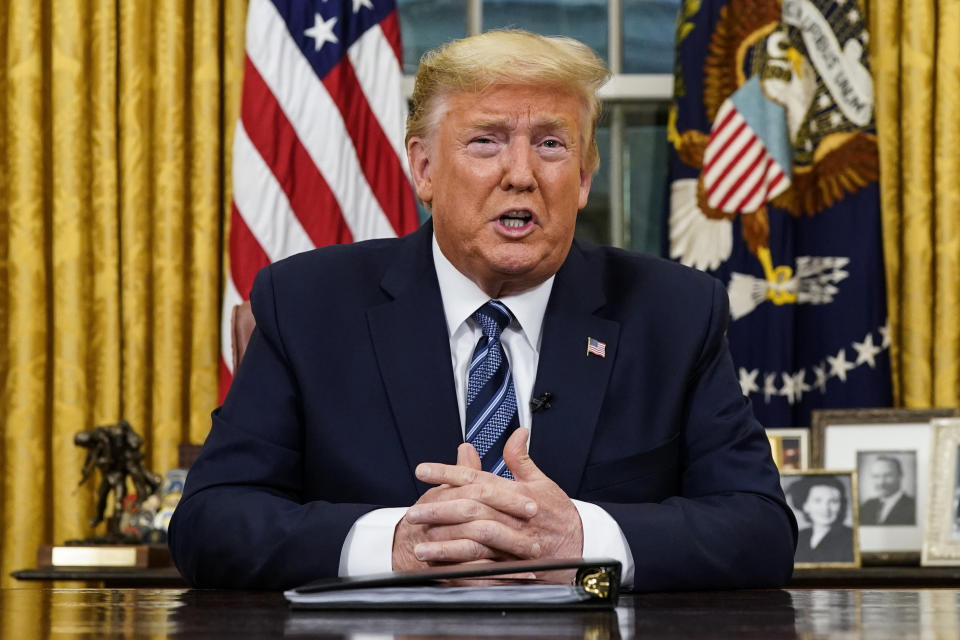
‘If you have 30 million people get infected all at once...’
Amid all of this uncertainty, Forman stressed that it’s important to understand that if it’s a mild illness for some, the number of people affected can still have a major impact.
“For most people, it will be a mild illness,” he said. “But if it’s going to be a severe illness for 5% of the population, if you have 30 million people get infected all at once, so that you have 3 million people passing through the health care system all at once, let’s imagine that we have 300,000 ICU capable beds that may have ventilators,” he posited.
“You cannot imagine that volume with our capacity in this country right now if it happens all in a short period of time. So anything we can do on a local and national level to mitigate that will save lives,” Forman added.
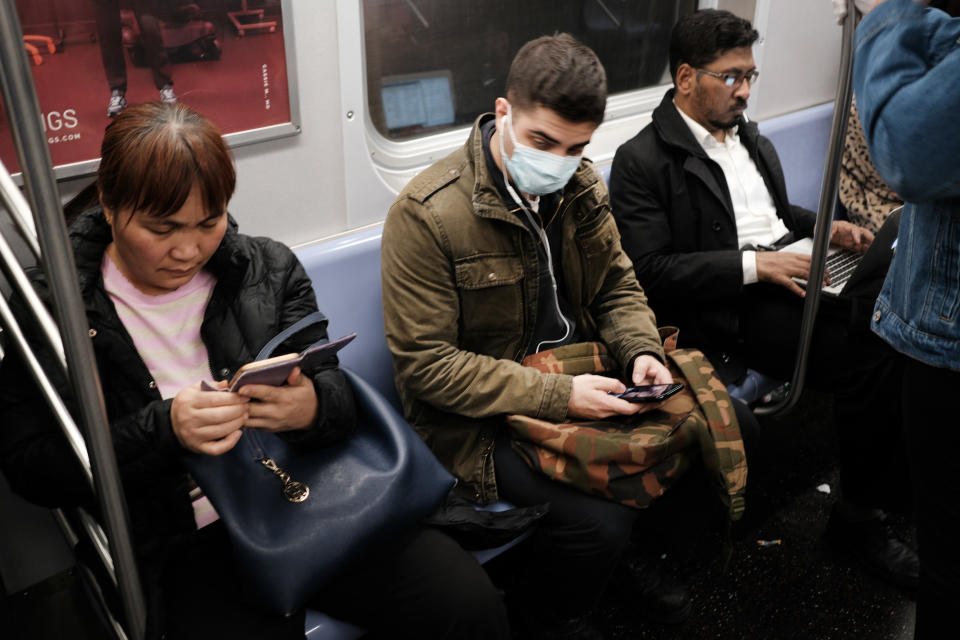
Avoiding misinformation while keeping the public informed is another area where medical professionals are making strides.
“We have a hotline set up already,” Forman said. “I think a lot of other hospitals have done that as well. We’ve been taking calls from across the nation. I think that serves the public good. That’s part of what we need to do here.”
He continued: “We do need to amplify and augment our telemedicine capacity. There are laws that prevent that effect. Fortunately, in the original coronavirus bill, there are provisions. There need to be additional provisions put in place to fully allow people to practice at distance, including across state lines when necessary.”
Adriana is a reporter and editor for Yahoo Finance. She can be reached at [email protected]. Follow her on Twitter @adrianambells.
READ MORE:
Democrats and Republicans are divided on coronavirus, polls say
World Health Organization formally declares coronavirus a pandemic
Read the latest financial and business news from Yahoo Finance
Follow Yahoo Finance on Twitter, Facebook, Instagram, Flipboard, SmartNews, LinkedIn, YouTube, and reddit.
